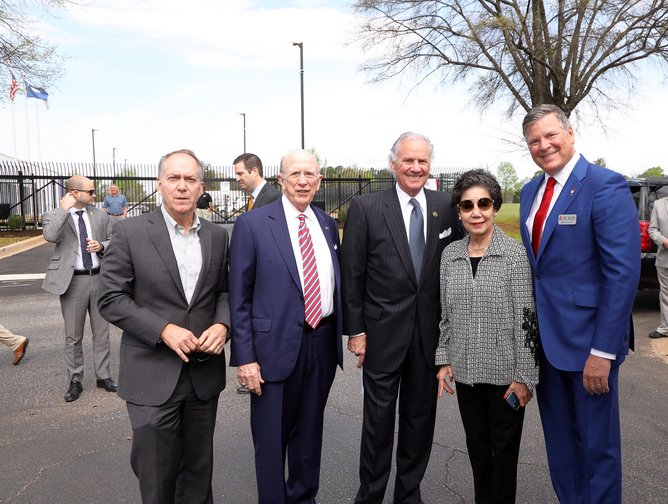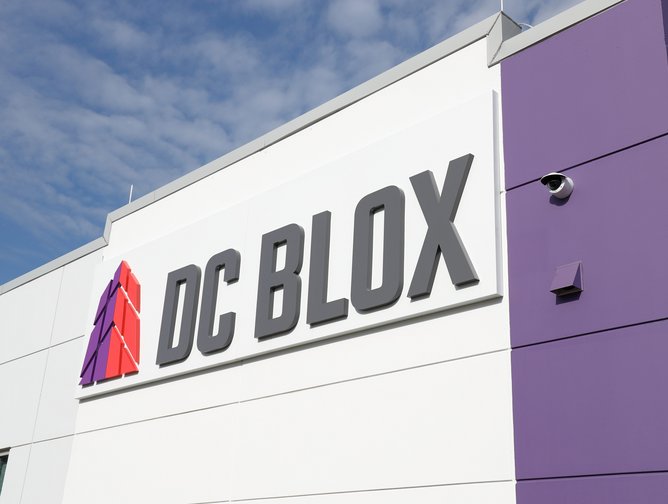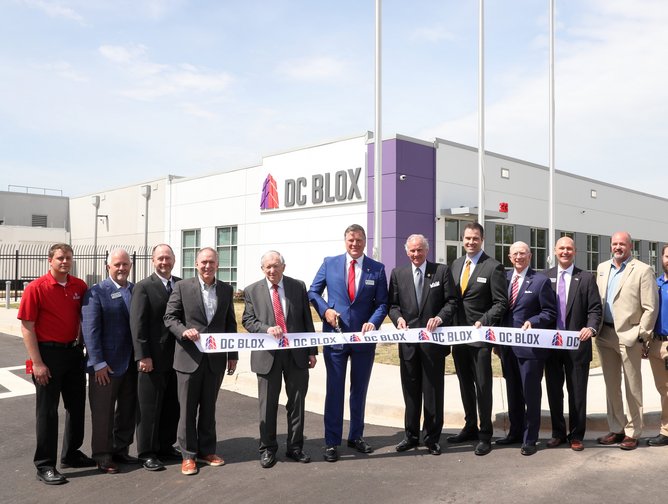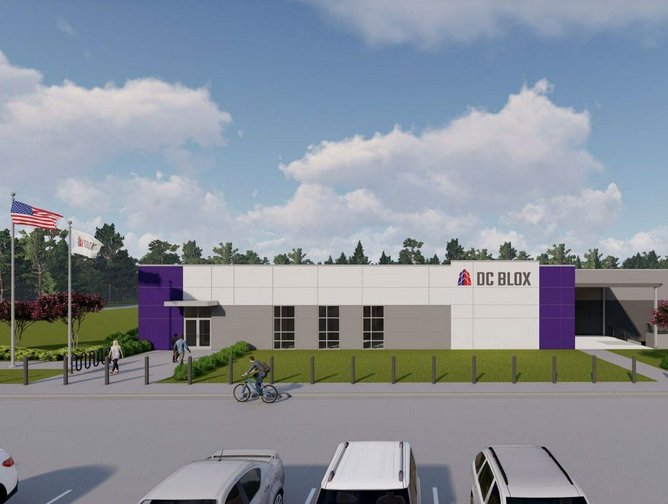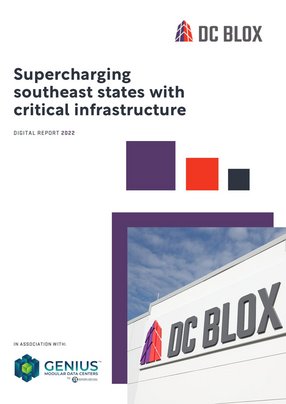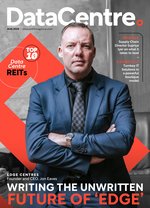Supercharging southeast states with critical infrastructure
DC BLOX provides secure, reliable Tier III data centres and robust connectivity to businesses in growing markets, with a particular focus on the southeast of the United States.
Passionate about driving progress in communities where the foundational infrastructure for the digital economy is limited, CEO Jeff Uphues says that it has been a “really exciting journey” since they were founded eight years ago.
“The whole premise behind us was to serve local mid-size markets that didn't have the critical infrastructure, like some of the bigger cities like LA or New York had done. We've always been in the southeast and around the Atlanta market.”
Systematically putting in data centre after data centre throughout the southeast required purchasing more landed markets and then integrating them all together within a private, dark fibre or high-bandwidth connectivity solution.
This fabric of interconnected data centres is designed to “serve locally and connect globally on behalf of our customers”, adds Uphues, and the approach “brings the market to major new levels of connectivity”.
DC BLOX took a ‘bottoms up’ approach in first looking at the markets, size, and growth, as Uphues explained.
“When you take the landscape around the southeast United States, you've got some real growing cities here. You've got Charlotte, Atlanta, Nashville; other markets like Greenville and Charleston in South Carolina, and Birmingham and Huntsville in Alabama. Not to mention many cities throughout Florida. The southeast is a fast-growing environment and there are great economic incentives for businesses to move here. You don't have these harsh cold winters either, so it's ideal for infrastructure,” said Uphues.
Uphues is proud of the services DC BLOX provides, as they understand that businesses are facing increasing challenges that have a profound impact on their ability to compete and grow in their markets.
Infrastructure is considered vital to the way businesses operate and deliver services and must connect customers to infrastructure in their markets and across the globe. With the pandemic accelerating digital transformation – mass migrations to the cloud, increased mobility and big data – increased agility is required.
With the urgent need for new physical and network infrastructure, DC BLOX works with businesses and with state and local governments to build that infrastructure, and to develop the workforce and culture to grow their tech economies.
Myrtle Beach Cable Landing Station – a hurricane-proof gateway to the world
In a hyperscale landscape dominated by the major cloud companies in terms of internet transit and capacity, the industry has seen a shift from the telco internet – birthed from the likes of AT&T and Verizon – to the next generation of cloud services. As these cloud services needed to be distributed further outside of core markets, the cloud internet emerged.
One of the ways the cloud internet expands is internationally through subsea connections. DC BLOX were able to win the Myrtle Beach project with a large hyperscaler, one of a number of initiatives that DC BLOX are involved in with hyperscalers.
“Of all the cable landing stations on the eastern seaboard of the United States, Myrtle Beach was directly halfway between New York and Miami, and it's a centralised place that had many core benefits: there's not a lot of barrier islands to go around; the shelf of the subsea floor is a little shallower in areas before it drops off into deep water; it is close to the burgeoning data centre and communications hub of the Southeast US, and, aside from hurricane-proofing the building – which is common in Miami – it has a great climate”.
Dark fibre ‘interstate’
As part of the philosophy of serving locally and connecting globally, Uphues explained that DC BLOX took the added step of building a dark fibre ‘backbone’ extending directly from Myrtle Beach, running by Charleston and Augusta, all the way into Atlanta and landing in Lithia Springs, “where there's a lot of hyperscale data centres being built.”
“We've done this by building a multi-duct conduit and dark fibre system that allows us to connect our cable landing station all the way through to core hyperscale data centres and key points of exchange along the way, like Digital Realty and Telex in downtown Atlanta, or some of the hyperscale data centres that are out in Lithia Springs.”
Uphues describes it as “the expressway from the ocean floor all the way into Atlanta. DC blocks presses the ‘easy’ button for our customers, not only having data centres along the way, but now owning this dark fibre that allows us to create a unique capacity for providing connectivity”.
“We have this single purpose to serve locally and connect globally on behalf of our customers. Though we have customers with locations in Germany or AsiaPac, we never truly lived our purpose and vision until we won the Myrtle Beach project,” said Uphues.
Southeast as an Edge location
DC BLOX continues to expand, currently running five core data centres with the CLS and a seventh recently announced and many more to come – all to a modular infrastructure that’s right-sized for the market acting as connectivity exchanges that serve those markets.
“Just like you have core exchanges within larger markets, we've just extended those into the edge markets we serve. Then, through this dark fibre, we are interconnecting all our sites together so all along the route, you have what we'll call ‘gateways’ functioning as access points for content to be deployed.”
Uphues continued: “They become connection points for rural cooperatives and cities to connect into that provides the capacity and Internet transit services needed to connect their local broadband networks from their communities to the world. So, in essence, our ability to empower the edge is also helping to bridge the digital divide in our region. It's an exciting time and we've got a lot ahead of us.”
With predictions suggesting there’ll be a need to double the size of network capacity in the next five-to-eight years, Uphues reflects on the core infrastructure that is needed. He asks: “How many conduit systems are available in the ground, where they can pull more cables or pull more fibre from, and how many fibres are available in the existing conduit systems?”
As part of the services that they focus on at DC BLOX, the first is the core infrastructure of data centres; the second is the interconnectivity between those data centres, as well as the interconnectivity between cloud companies and major connectivity exchanges; and, thirdly, high capacity data storage for customers that don't want to put data into the cloud either because the data sets are too large and distant, latency issues, or interactiveness with the cloud is cost prohibitive.
These large storage arrays contain videos and images, genomic research and healthcare data, and lots of other data sets that are kept local in one of the markets, with network connectivity available between data centres to distribute and protect data where it is needed.
DC BLOX has a higher purpose
To conclude, Uphues suggests that many people in the data centre business today have come out of the real-estate business and are still just real-estate focused. While he acknowledges that they founded the industry, this was primarily just to erect a building filled with computers containing storage and power.
“The DC BLOX team is made of technology industry veterans. We have always taken the approach that this is, at the end of the day, a technology service that you're buying; whether you're renting a cabinet of equipment in a building, you’re moving data to a public cloud provider, or you are backing up your mission critical data off-site . We are no longer selling services to facilities managers or CFOs, we’re selling into CIOs and CTOs. You’ve got to understand strategic IT – it’s not just a real-estate business anymore.”
DC BLOX engages in the markets and contributes to them, too, minding local social and environmental concerns, to ensure the business maintains a higher purpose.
“In every market that we go into, we attempt to use local contractors. When you build a data centre, there's lots of different contractors you use. We try to take a percentage of our entire construction cost and say, ‘who are the disadvantaged and minority-owned businesses here that can help provide us services?’. We want to help the community and help them grow their business.
“Every market that we have is passion-led by the executives and the people that we put there. So we hire local people with a connection to the community,” said Uphues.
There are many wide-ranging causes that DC BLOX supports, including women's shelters, food banks, and tech infrastructure – in the form of giving away thousands of computers through partner organisations and volunteering to help where needed.
“A laptop means a world to somebody when they have connectivity to explore the world. This group then provides training classes to them, partnering with school systems. Our values are foundational to how we serve our markets and have a real impact on our culture.”
According to Uphues, the pandemic has taught us all that there's a lot to be said about having personal connections with the people you work with.
“It's taught us how to be more interconnected and stay that way. The growth of the cloud internet is happening everywhere. The remaking of the interstate and the additional capacity that is available is helping us to stay connected to each other locally and globally”.
